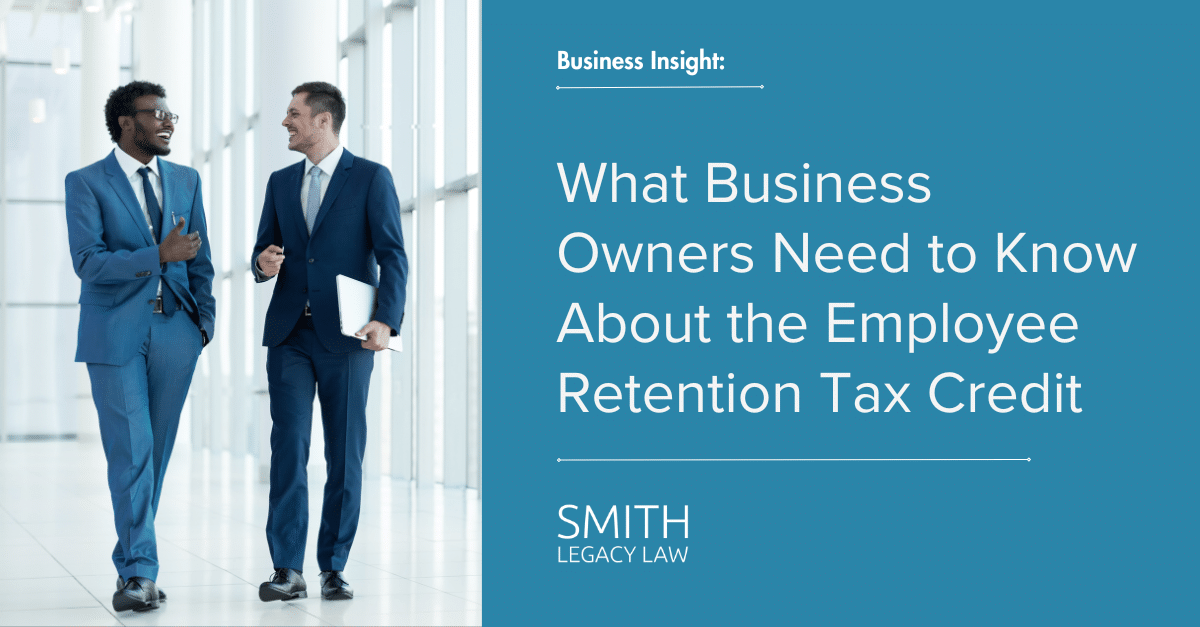While the infrastructure law that passed last year had many positives, it had at least one negative in ending the Employee Retention Tax Credit (ERTC) for wages paid after October 1, 2021. The ERTC was created in 2020 in response to COVID to provide financial benefits to businesses that retained their employees. The credit may not apply as of October 2021, but businesses can still obtain the ERTC for the 2020 and 2021 tax years if they did not apply previously. If you are a business owner who suffered financial losses during COVID, here is what you need to know about the Employee Retention Tax Credit.
What Is the Employee Retention Tax Credit?
The Employee Retention Tax Credit is a fully refundable tax credit for employers equal to 50% of qualified wages that eligible employers pay their employees.
Who Qualifies for the Employee Retention Tax Credit?
In order to qualify for and receive the ERTC, there are a few important points to be aware of as follows:
- The ERTC applies to wages paid within the designated period. The credit is for payroll taxes you paid for employees kept on staff during COVID. This period runs from March 12, 2020 to October 1, 2021.
- You must show a revenue drop of 20% year over year, but this is calculated quarterly. The ERTC is limited to employers that lost significant income during COVID. Thus, you must demonstrate a loss of 20% in revenue compared to the prior year. To complicate matters, you must apply and qualify quarterly. Every quarter you must determine your revenue and compare it to the same quarter in the prior year. For example, to qualify for the first quarter of 2021, revenue in the first quarter of 2021 must be 20% less than the first quarter of 2020.
- The credit is given for the quarter you qualify and the next one. In the example above, if you qualified for the credit for the first quarter of 2021, you would also get the credit for the second quarter.
- You can file an amended return if you did not claim the credit previously. Employers must file a quarterly payroll tax return with the required information in order to receive the credit. If you already filed and did not claim the credit, you can file an amended return. You have three years to file an amended return, which means that you can still obtain the credit for quarters in 2020 until 2023 and get it for 2021 until 2024.
- Gather documentation. You must show your losses, so have your accountant or bookkeeper, generate the necessary financial documents in support of the credit.
COVID was a challenge for many business owners. If you were hurt financially, take advantage of government programs designed to aid your business. Claiming the ERTC can provide significant funds to ensure that your business recovers and thrives as we hopefully move out of the pandemic.
If you need assistance with applying for the ERTC or other COVID-related assistance, contact us for a consultation. Our attorneys and network of advisors can determine what tax benefits, loans, and other financings can help your business be more successful.
